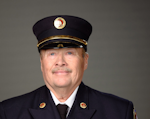Occupational Cancer Considerations for the Volunteer Fire Service
Volunteer firefighters provide life-saving services to local communities throughout the country. Unfortunately, this untiring dedication comes with risks, sometimes known and sometimes unknown. By identifying and understanding these risks, they take the actions that are needed to lessen the hazards that are faced, so they can continue to do the job that they love.
Over the past six years, firematic associations have been adamant about communicating the issues that relate to occupational cancer. Just five years ago, the National Fallen Firefighters Foundation joined forces with national fire service organizations from career, volunteer and wildland to build a foundation of concern about the rising number of firefighters who are diagnosed with cancer. They called it an “epidemic.” It was that word, and that word alone, that brought about the realization that this is a battle for their lives, and this battle wouldn’t be won fighting it alone.
A change in attitude
How can the job that we love give us cancer? What can be done to protect firefighters and to serve the community without this threat looming? It turns out that the culture is perhaps the biggest obstacle. Firefighters are self-determined to define their value and routinely indicate that, as long as they get to decide when to stop being firefighters, they can accept the consequences of the profession.
Unfortunately, so many of those firefighters traded their health for the job. However, it doesn’t have to be this way.
Cancer doesn’t have to be accepted as another consequence of the dangerous profession that firefighters choose to pursue. It is in departments’ and individuals’ power to take actions that will lessen risks and make it far less likely that anyone will become another statistic. However, to do this requires a change in attitude. Harmful toxins and carcinogens must be mitigated. The days of showing off dirty helmets and gear are over. Pride must be taken in doing everything possible to decontaminate people, gear, equipment and vehicles after a fire call. Taking these actions enables everyone to be there for the next call.
Understand the causes and learn the steps that you can take to mitigate the threats and reduce your risks; doing so will make you feel as if you can take care of yourself and that you are doing what you need to do to be there for your family. It also will make you understand the value of what you have now, both in the station and as you walk through the front door of your home after a call. Attacking the risks that you face when it comes to occupational cancer is something that you never must place on a shelf or in an office drawer and forget.
My personal experience
My challenge began on Dec. 24, 2014, when my life changed forever. Being diagnosed with B-cell non-Hodgkin’s lymphoma, which was attributed to my job as a volunteer firefighter, was a message that I had a very difficult time understanding. After 37 years in the volunteer fire service helping people, why did I feel like a failure?
I was that volunteer firefighter who never washed his hood and very seldomly washed turnout gear and helmet, because it was my badge of courage. Yet, looking back at it now, I would’ve taken the time to do things very differently if I would’ve known the pain that I could have spared myself and my family. (Read McQueen’s Survivor Story profile on page A9.)
Cancer will change you. It will shape you and set your course in directions that you never have imagined. However, in the end, it won’t crush, consume or destroy you. Jim Valvano stated in his famous ESPY speech, “Cancer can take away all my physical abilities. It cannot touch my mind, it cannot touch my heart, and it cannot touch my soul.” My treatments were completed at Memorial Sloan Kettering Cancer Center in New York City. I lived in a hotel five days per week for seven weeks while undergoing the treatments. Laying under the intensity-modulated radiation therapy (IMRT) machine for 45 minutes each day, I wondered whether the cancer would enter into remission and end this horrible nightmare.
What I took from my experience is that I had to do more to raise awareness of the epidemic and work toward preventing my brothers and sisters from going through this experience.
Volunteer challenges
Volunteer fire departments face some unique challenges in that their budgets might not cover such things as new turnout gear, washer/extractors, second hoods, etc. They also might have responders who carry their gear in their own vehicles. Many departments need to re-examine their SOPs/SOGs to ensure that they are doing all that they can to reduce exposure risks. That is why I worked with the International Association of Fire Chiefs—Volunteer & Combination Officers Section and the National Volunteer Fire Council to develop the “Lavender Ribbon Report.” It was aimed at providing best practices for preventing firefighter cancer, so volunteer departments and individual firefighters would have an action plan that has clear guidance for how they can reduce the risks.
I also realized that we needed to do more to ensure that those of us who do get the diagnosis have financial support. It is a terrible revelation that many states either don’t have a cancer presumption law or don’t cover volunteer firefighters in their existing law. At the time of my treatment, the state of New York didn’t have a law that included volunteers. I joined the ongoing effort to rectify this situation along with the Firemen’s Association of the State of New York, the New York State Association of Fire Chiefs, the New York State Fire Coordinators’ Association and the Association of Fire Districts of the State of New York.
We built a solid campaign for the passage of the New York State Volunteer Firefighter Cancer Benefit Program, which was signed into law two years ago. Although this law will provide financial assistance to the volunteer firefighters in the state of New York, it can’t be the answer to the problem. The mission must be to prevent the use of this financial solution. Volunteer firefighters must begin early in their fire service careers. They must take lessons from fire departments across the nation that have embedded cancer prevention education in their new recruit classes. You must be vigilant in following NFPA standards and guidelines to properly decontaminate gear on scene and at the station.
Another part of the battle
Having worked with volunteer firefighters from my county in the formation of the Believe 271 Foundation Inc. to support volunteers in their cancer fights, we now realize the unfortunate issues that are faced with post-traumatic stress (PTS) with a cancer diagnosis. This PTS is one that will be in the forefront of the battle for years to come. Firefighters who are dealing with cancer might have symptoms of PTS at any point from diagnosis through treatment, after treatment is complete or during possible recurrence of the cancer. Family members of firefighter cancer survivors also might have PTS.
Symptoms of PTS usually begin within the first three months after the trauma, but sometimes they don’t appear for months or even years afterward. Even though it’s been six years since my cancer battle, there still are many nights when I lay awake in bed, praying to God that my cancer never comes back. I look at the ceiling visualizing the IMRT machine making its trek across my body. Sometimes this becomes so intense that it feels like I am actually living through the event all over again. My wife understands. She asks me quite often if I am OK. She walked the walk with me.
Just take a look in the chart at the comparison between occupational cancer and the mental issues that can be faced with PTS .
Occupational cancer is such a powerful and painful diagnosis. The more of us who stand up to this terrible disease and do what we can to reduce our risks, the closer that we come to defeating it. For those who do receive that diagnosis, we need to understand the emotional effect that comes with it. So, now, fire service leadership not only is challenged with educating firefighters to the dangers of cancer, they must be even more aware of the mental strains that are placed on occupational cancer survivors when they return to work. Families as well must understand that there is more to beating cancer than the treatments. There has to be a bond of love and understanding for those who are going through this fight. Understand where and when to turn for help.
About the author
Brian McQueen is past chief of the Whitesboro, NY, Fire Department and past director of the Firemen’s Association of the State of New York (FASNY). He serves as a New York director, executive committee member and cancer subcommittee chair for the National Volunteer Fire Council. He was awarded the Golden Trumpet from FASNY for his work on the New York State Volunteer Firefighter Cancer Benefit Program, and he is a board and founding member of the Believe 271 Foundation Inc.

Brian McQueen
Brian McQueen is past chief of the Whitesboro, NY, Fire Department and past director of the Firemen’s Association of the State of New York (FASNY). He serves as a New York director, executive committee member and cancer subcommittee chair for the National Volunteer Fire Council. He was awarded the Golden Trumpet from FASNY for his work on the New York State Volunteer Firefighter Cancer Benefit Program, and he is a board and founding member of the Believe 271 Foundation Inc.







